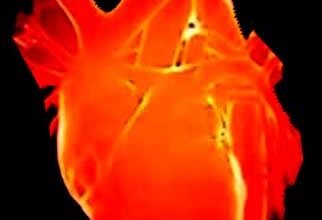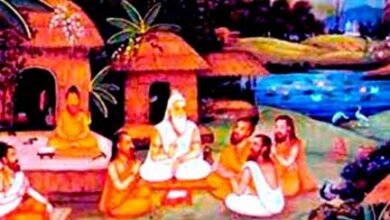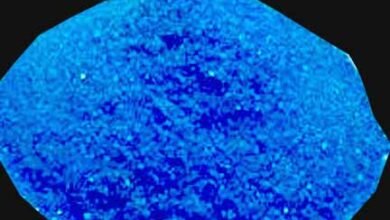
जीव विज्ञान से संबंधित-86.
| 1. Usually bacterial cell divides.? = By incompatible cell division.
2. The number of chromosomes in daughter cells remains half, it is called? = Meiosis. 3. The point at which both chromatids meet on the cross-shaped shape? = Chismata. 4. The cyclic process from the end of one division of the cell to the end of another division is called? = Cell cycle. 5. The period or period between two successive or successive divisions when cell division is not happening is called? = Interphase. 6. How many daughter asteroids are formed by the division of a centrosome? = Two (02). 7. Who introduced chromosomal inheritance? = Sutton and Boveri. 8. What will be the Genetic constitution of the progeny resulting from the hybridization of Allele’s point of view? = 1/2 AA and 1/2 aa. 9. What will be the percentage of production of ab-type couplers by the AaBb generator? = 12.5%. 10. How are genes arranged on chromosomes? = Linear. 11. Women rarely experience the physiologic defects of hemophilia, when? = Be homozygous for faults. 12. Those genes that tend to stay on the same chromosome are called? = Attached. 13. Whose chromosomes are carriers? = Ancestral qualities. 14. What is the unit of mutation? = Muton. 15. Which model was given by Kornberg? = Nucleosome. 16. What is the number of chromosomes in a man’s sperm? = Two (02). 17. The process of removing anthers for hybridization in a bisexual flower is called? = Lamination. 18. The occurrence of two identical alleles found together in an organism is called? = Homo-zygosity. 19. What is the progeny produced by hybridization between parents of two different qualities? = Hybrid. 20. The occurrence of the effect of an allele when two alleles with two antonyms are present together is called? = Effectiveness. ============ ============== ============= 1. सामान्यतया जीवाणु कोशिका विभाजित होती है? = असूत्री कोशिका विभाजन द्वारा. 2. पुत्री कोशिकाओं में गुणसूत्रों की संख्या आधी रह जाती है, उसे कहा जाता है? = अर्धसूत्री विभाजन. 3. क्रॉस रूपी आकृति पर जिस बिन्दु पर दोनों क्रोमेटिड्स मिलते हैं उसे? = काइज्मेटा (Chiasmata). 4. कोशिका के एक विभाजन के अन्त से दूसरे विभाजन के अन्त तक के चक्रीय प्रक्रम को कहा जाता है? = कोशिका चक्र. 5. दो क्रमिक या उत्तरोत्तर विभाजनों के मध्य की वह अवधि या अन्तराल (Period) जबकि कोशिका विभाजन नहीं हो रहा होता है उसे कहा जाता है? = अन्तरावस्था (Interphase). 6. तारककाय (Centrosome) के विभाजन से कितने पुत्री तारककायों का निर्माण होता है? = दो (02). 7. वंशागति के गुणसूत्रवाद को किसने प्रस्तुत किया? = सटन और बॉवेरी (Sutton and Boveri). 8. युग्मविकल्पी (Allele) दृष्टि से (Aa) व्यक्ति के संकरण से उत्पन्न सन्तति का आनुवंशिक संगठन (Genetic constitution) क्या होगा? = 1/2 AA एवं 1/2 aa. 9. AaBb जनक द्वारा ab प्रकार के युग्मकों के निर्माण का प्रतिशत कितना होगा? = 12.5%. 10. गुणसूत्रों पर जीन की व्यवस्था कैसी होती है? = रेखीय. 11. महिलाएँ विरलता से ही हीमोफीलिया के शरीर क्रियात्मक दोष अनुभव करती हैं, जब? = दोष के लिए समयुग्मजी हों. 12. वे जीन्स जो एक ही गुणसूत्र पर रहने की प्रवृत्ति रखते हैं उसे कहा जाता है? = सहलग्न. 13. गुणसूत्र किसके वाहक होते हैं? = पैतृक गुणों. 14. उत्परिवर्तन की इकाई होती है? = म्यूटॉन. 15. कॉर्नबर्ग ने कौन-सा मॉडल दिया था? = न्यूक्लियोसोम. 16. मनुष्य के शुक्राणु में गुणसूत्रों की संख्या कितनी होती है? = दो (02). 17. द्विलिंगी पुष्प में संकरण हेतु परागकोषों को निकालने की क्रिया को कहा जाता है? = विपुंसन. 18. दो समान एलील्स का एक जीव में एक साथ पाये जाने की घटना को कहते है? = होमो-जायगोसिटी. 19. दो भिन्न गुणों वाले जनकों के बीच संकरण से उत्पन्न संतति को कहते है? = संकर. 20. दो विपर्यायी लक्षणों वाले एलील्स के एक साथ उपस्थित होने पर एक एलील के प्रभाव दिखायी देने की घटना को कहा जाता है? = प्रभाविता.
|





